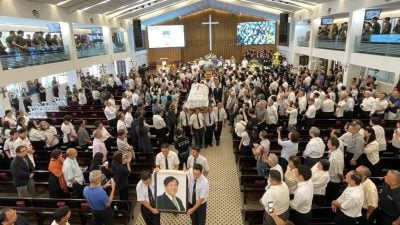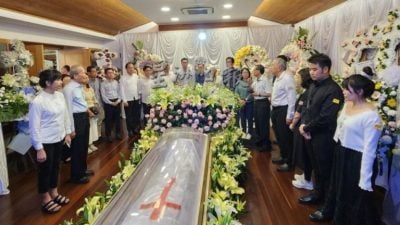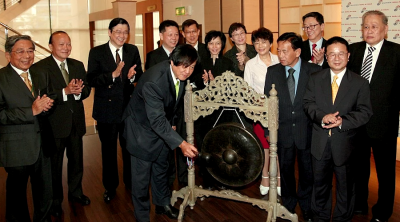
By Awang Azman Awang Pawi
In day-to-day world, one plus one is equal to two, but in politics, one plus one is not always equal to two!
The same goes for the recently concluded Kimanis by-election in Sabah. Many believed Parti Warisan should get a lift from its alliance with PH because when Warisan fought Umno in GE14, the party did not get any help from PH.
As if that is not enough, PPBM is joining the race against BN. By political logic, when the Umno rep for Membakut — one of the state assembly seats under Kimanis — defected to PPBM, by right he should take with him the almost 2,500 voters in the state constituency.
This nevertheless is not the case. PH lost to BN by a much broader margin of 2,029 votes against only a razor-thin majority of 156 in GE14, meaning a 13-fold increase in BN's majority.
This seems illogical mathematically. Sure enough many PPBM supporters did not vote for Warisan this time.
While many Umno elected reps jumped ship to PPBM after the last general election, many Umno grassroots have remained loyal to the party, as evidenced by the by-election outcome in Kimanis.
The political situation of PPBM and Umno in Sabah is quite unique in a way that Membakut assemblyman Arifin Arif is now with PPBM while his father-in-law is the state's former chief minister Musa Aman. Musa's son, Sipitang MP Hafiz Aman is now with PPBM while Anifah Aman became an independent after quitting Umno. It has been rumored that Anifah was once keen to join PPBM.
The Kimanis by-election last weekend saw the election of Mohamad Alamin winning 12,706 votes with an impressive majority of 2,029 votes, a huge jump from 156-vote majority in GE14.
The outcome came as a shock to Warisan and PH.
The fact that the turnout surpassed the 50% mark at noon time delivered certain political messages. Firstly, the voters were impatient to get their votes cast and they made the effort to arrive at the polling stations early to make sure their voices were heard by the government.
Secondly, there was something inside the hearts of the voters that they wanted others to know about. Obviously a similar scenario existed during the last general elections that culminated in the collapse of the six-decades-old BN regime.
The only difference is, it is now Warisan's turn to get the whip from the voters.
61.93% of the voters in Kimanis are Muslim bumiputras comprising of Bruneians, Bisayas and Bajaus. The second largest group is non-Muslim bumiputras (31.92%) mainly Kadazan-Dusuns and Muruts, while Chinese make up 3.66% and other ethnic groups 2.49%.
A unique political phenomenon among Muslim and non-Muslim bumiputra communities in Kimanis is that posters of candidates and their parties are found everywhere along the main roads as well as alleys in the villages whereby party flags are hard to find. Normally in Sabah's political culture, if a party's flag is raised in front of a house, it shows that the family is a strong supporter of this particular party, but again this could change as a party or candidate can pay to get the flag erected in front of a voter's house.
The controversial Sabah Temporary Pass (PSS) issue is actually a positive development from the biometric point of view in documenting foreign migrants, and the RM300 fee charged can be used to finance the cost of supporting the state's PATI (illegal immigrants) numbering in millions.
However, the opposition see this as a disaster especially if the government allows these migrants to enter Peninsular Malaysia using PSS. They are also worried that these PSS holders will form their own families here and their children will be granted Malaysian citizenship.
Many voters are confused and unable to make a right decision, thus falling into the trap of politicians fanning public sentiments. There have been calls to review and shelve the PSS policy and such calls have been conveyed in the form of ballots.
Following the electoral defeat in Kimanis, it is anticipated that the Sabah and federal governments will review the said policy.
On the economic front, the voters have had high expectations that the new government would bring changes to their lives, but after almost 20 months, not much has been felt except higher cost of living and goods prices escalating as well as slashed allowances.
Public frustration towards the PH government happens not only in West Malaysia but also in Sabah and Sarawak.
While some reforms have been introduced, such efforts are generally perceived to be inadequate and would not remarkably benefit the middle and lower-income groups.
Chief minister Shafie Apdal has announced the construction of a new airport to reduce the congestion at Kota Kinabalu international airport (KKIA). The state government also intends to upgrade and expand the state's existing railway service.
Unfortunately these two proposals have been turned down by the federal government.
As if that is not enough, the autonomy promised to the states of Sabah and Sarawak under Malaysia Agreement 1963 has yet to be materialized, along with the 20% oil royalty pledged.
The failure of the PH government to visualize the needs of the people in Sabah has spawned gross dissatisfaction among the people in the state.
The pH government needs to implement changes and review all the promises it made in the election manifesto.
The outcome of the Kimanis by-election should expedite the process of power transition to give the new prime minister new momentum to lay out all his plans and directions in preparation for the next general election.
Failure to transfer the power peacefully and timely will intensify voter frustration and will eventually make PH one-term government.
(Associate Professor Dr Awang Azman Awang Pawi is Senior Lecturer at Department of Socioculture, Academy of Malay Studies, Universiti Malaya.)
ADVERTISEMENT
ADVERTISEMENT


































